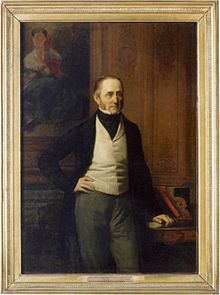The House of Hottinger
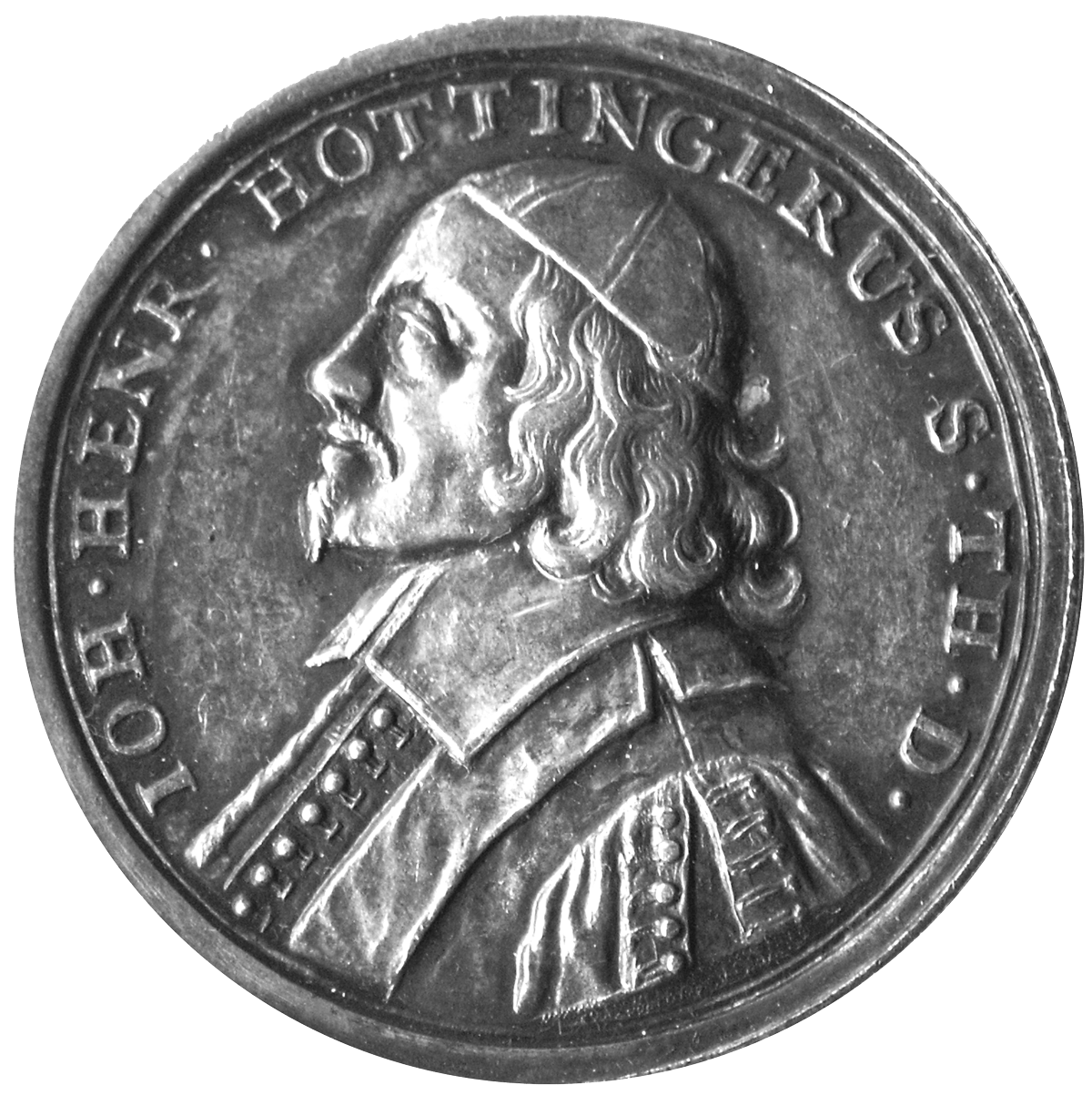
Since the eighteenth century, the Hottinger family has been a modernising force – developing trading links, banking and capital markets in Europe and the New World.
Today, various parts of the group continue to be involved in banking and finance across the continents. Family members take leading roles alongside seasoned professionals from varied backgrounds, selected for their probity and dedication to their clients. It is this international scope, breadth of experience and integrity which ultimately lies at the heart of our offering and helps us weigh opportunities against the risks inherent in volatile developed capital markets.
However large we grow, however many offices we open, you can be sure that we will always stay true to the character of the original Baron, Jean-Conrad Hottinger (1764-1841) who was described in the press as “a gentleman of considerable credit and reputation”. We are proud to have been named ‘Family Office of the Year’ in 2017, 2019 and 2020.* *City of London Wealth Management Awards
Early history
The earliest known mention of the name Hottinger was in 1362 in Zollikon, near Zurich. Four generations later, in 1495, historical records from Zurich refer to another Hottinger, a clergyman.
Over the following three centuries, other ‘men of the cloth’ are known of, including Klaus Hottinger (1467-1524) the earliest martyr of the Swiss Protestant movement. Other notable family members from this early period include theologians, historians and scientists such as Hans-Heinrich (1620-1667), a famous Orientalist who was Dean of the University of Heidelberg.
During the eighteenth-century family members began careers outside the church. They were drawn towards merchant trading and were instrumental in the development of the early banks and insurance agencies.
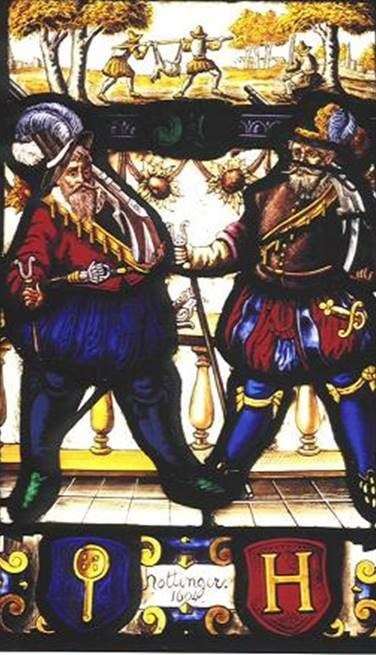
The First Hottinger Bank
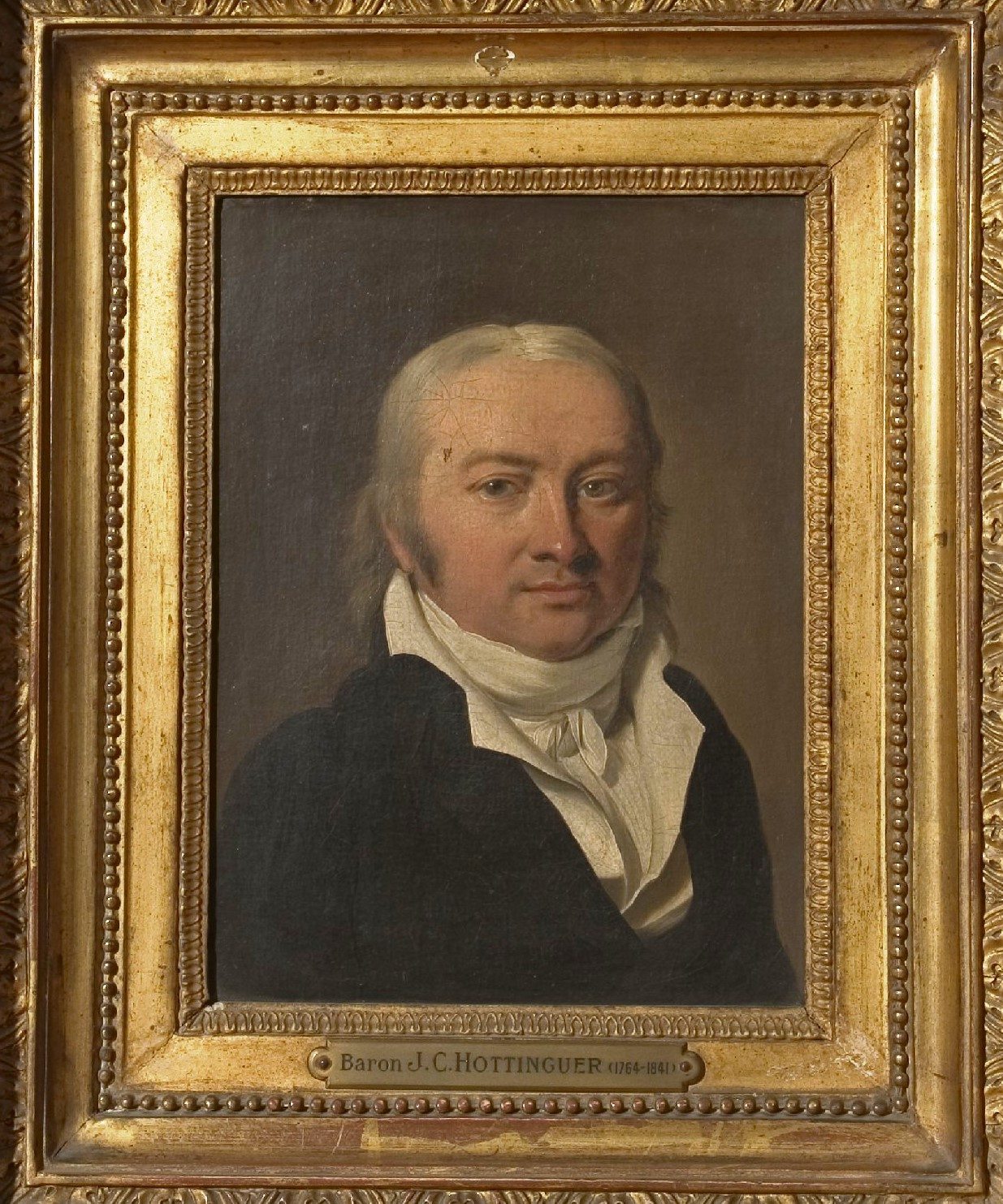
By 1786 we find mention of Jean-Conrad Hottinger who, at just twenty-six, was living away from his Swiss family and founded his first company, ‘Messieurs Rougemont & Hottinguer’, in Paris.
Months later, this company was registered as a bank in the Royal Almanac of France, with offices located in the bustling Hôtel de Beaupreaux, Croix-des-Petits-Champs, right opposite the new Banque de France buildings.
Three years later, Jean-Conrad struck out on his own and opened an eponymous bank, ‘Messieurs Hottinguer & Cie’.
Brave New World
Jean-Conrad worked hard and was ambitious. Times were turbulent. In 1793 he was denounced for ‘royalist’ activities and fled back to Zurich, and then to England where he married his American sweetheart, Martha Eliza Redwood, daughter of an English family who had set up plantations in the United States.
Whilst Europe bickered, in 1794 the young couple sailed to the East Coast of America where they met a group of French emigrants, including Talleyrand, the famous diplomat. Jean-Conrad became important in diplomatic circles and was a key player in the infamous ‘XYZ Affair’ which shocked London society to the core.
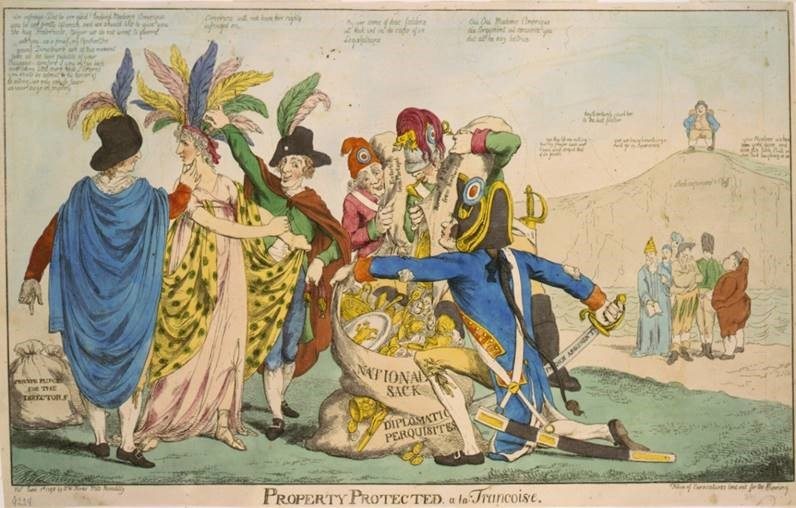
Launch of the Banque de France
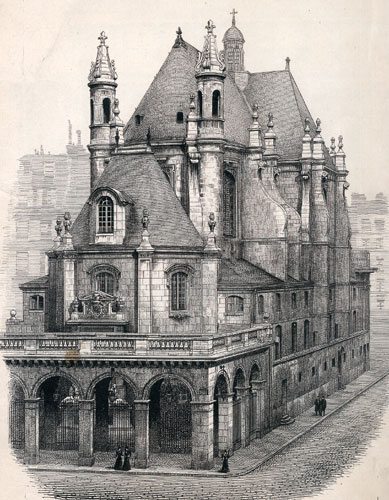
In Paris, the Banque de France was created in 1800, just 14 years after the creation of Banque Hottinguer. With a Board of 20 members, Jean-Conrad was appointed Regent in 1803 and for the next 133 years there was a Hottinger family member on the Board of this de facto Central Bank.
As he also held the position of President of the Paris Chamber of Commerce and Industry, Jean-Conrad held a supremely powerful position within the local economy.
Baron of the Empire
In 1810, Jean-Conrad Hottinger was made a Baron of the French Empire by Napoleon in recognition of the family’s support over many years.
A new Hottinger family coat of arms was created and the Baron added a ‘u’ to his name to ensure the correct pronunciation of the name in French.
As well as being appointed Baron of the Empire for his services to Napoleon, Jean-Conrad was also named Chevalier of the Legion d’Honeur, Colonel of the National Guard and a Deputy of the Seine region.
Hottinger became very wealthy and, due to his experience of trading and finance, his views were widely respected. He became influential within the very closed circle of European Protestant banking families such as the Rothschilds, Delesserts, Barings, Mallets and Cazenoves.
In 1819 the Baron purchased Chateau Piple which remained the family seat for the next six generations.

The Golden Age
In 1833 Jean-Henri, the heir apparent, was appointed as head of Hottingeur & Cie. at the age of 30
Times had again become turbulent but the Hottinger family continued to support the nascent industrial development in France, ensuring it kept pace with that of Great Britain.
They launched Caisse d’Epargne de Paris in 1818, alongside Baron François Delessert. Jean-Henri proved himself a valuable partner to Delessert who eventually offered him the hand of the daughter and heiress. The Hottingers eventually incorporated Banque Delessert into their operations in 1848. In this same year the family moved into their new home, the Hôtel Hottinguer, rue de la Baume, Paris.
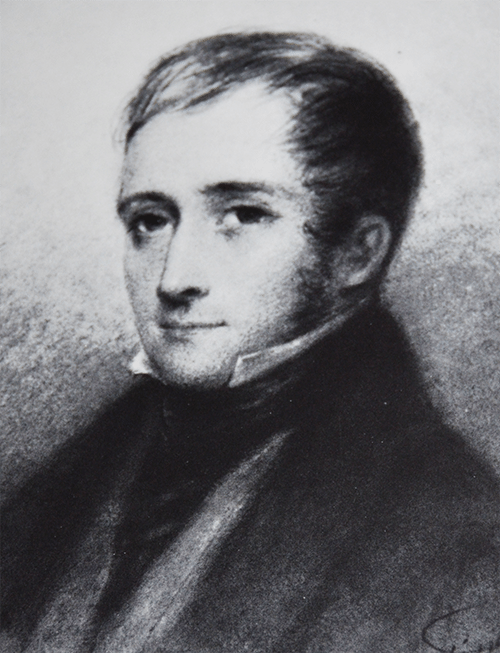
Tragedy at Sea
During the mid-19th century Jean-Conrad travelled extensively and built up a fleet of clipper, or ‘packet’ ships based in Delft and Liverpool. One of these, ‘The Hottinguer’, sailed frequently to the New World, stopping frequently in Dublin to pick up Irish emigrants escaping the ravages of the ‘Potato Famine’.
In January 1850 the ship left Liverpool bound for New York with a full cargo of merchandise, 20 passengers, its Captain Bursley and 13 of his crew on board. On the 12th of January at 6 a.m., during a gale, she struck rocks on Blackwater Bank, near Wexford in Ireland. All the passengers, with eight of the crew, escaped by rowing boats to Morris Castle, but the captain and five crew members perished as the storm worsened during the night.
